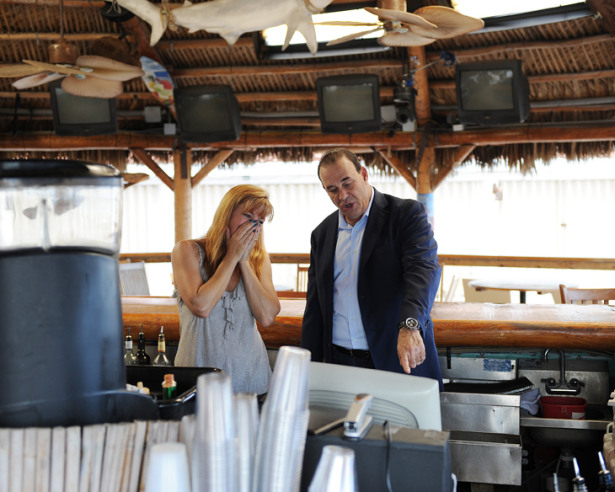Don't assume everyone knows diversity is an issue at your company
Pop culture fans probably know the name Aaron Sorkin - Oscar and Emmy award winner of movies/shows like "A Few Good Men", "The Newsroom", and "The West Wing", to name just a few. Sorkin has been a successful Hollywood creative type for years, decades even. A Few Good Men was written in 1992 for a bit of reference.
So since at least the release of the movie version of A Few Good Men, (late 1992 and for which Sorkin wrote the screenplay, and is essential cable TV movie watching to this day), Sorkin has been an important, active, and influential Hollywood person. Around long enough to understand how the movie and TV business works, to know scores of company executives, producers, investors, as well as creatives like himself - other writers, actors, and behind the scene professionals. 
Around long enough, (and making the assumption that he is not some kind of anti-social savant who only emerges from his office once every two years with his latest script), to be aware of one of Hollywood's most pressing, current, and heavily-discussed industry issues. Namely, the past and ongoing challenges for access, opportunity, and reward that have faced people of color, women of every color, and other less-represented groups. Last year's Oscars brought many of these issues to wider exposure with the #OscarsSoWhite controversy and discussion.
So you would think, or assume, that a Hollywood veteran like Sorkin - experienced, successful, extremely well-known and with a pretty high profile, would have interesting or at least some kind of a view or opinion about Hollywood's ongoing diversity challenges. You would think he may even have some advice, or a solution to propose.
You'd think wrong, apparently.
According to a report in Variety, and expanded upon in Business Insider, Sorkin expressed a lack of awareness of the issue, (not a lack of understanding, I am talking simple awareness here), of these issues that was kind of shocking.
From the Business Insider piece:
It's really hard to hide from the diversity issue that's plaguing Hollywood, unless apparently you're Aaron Sorkin.
The Oscar-winning screenwriter and creator of TV shows like "The West Wing" and "The Newsroom" sounded legitimately shocked when the topic came up while he was onstage at the Writers Guild Festival on Saturday, according to a Variety report of the event.
While Sorkin looked back on his career and talked about issues of the day with moderator Elvis Mitchell, the topic moved to the need for more diversity in writers' rooms for TV shows. It seemed like Sorkin had genuinely never realized it was an issue in the industry.
“Are you saying that women and minorities have a more difficult time getting their stuff read than white men and you’re also saying that [white men] get to make mediocre movies and can continue on?” he asked the audience, Variety reported.
While conversation shifted to other topics, Sorkin still couldn't let go of this new insight.
“You’re saying that if you are a woman or a person of color, you have to hit it out of the park in order to get another chance?” Sorkin reportedly said.
Kind of amazing, it seems to me, that an industry vet like Sorkin would have been that unaware or indifferent to an issue which as recently as last year, dominated the discussion surrounding the most important industry event and awards show, a show which Sorkin might even have attended himself.
But let's assume that was indeed the case, and Sorkin's success over the years, and his position as, well, an older white dude, has kept him pretty insulated from Hollywood's diversity discussion. It's not cool, but it is at least plausible. And if we take these quotes from Sorkin at face value, it seems at least mostly true.
What do we take away from this, i.e., why should it matter to us and our organizations?
Because the story reminds us that we can never just assume people with experience, who have been successful in their fields, who are perhaps the leaders in our organization, (and who might, possibly, have a little bit of 'Sorkin' in them), actually are cognizant to the potential diversity and inclusion issues in our companies and in industry more broadly.
There are probably at least some leaders or influential people (say a hiring manager that hires for a large volume of positions), that might be of the mindset, like Sorkin, for whom these issues are just not a part of their experience and not on their radar as they make people and talent decisions.
Sure, they may have glanced at your gender and diversity reports on hiring or promotions, but did they really interpret these the way you intended? Are you sure they understand the importance of this issue? Really sure?
From the Sorkin story we are reminded not to assume the most successful people in the organization are aware of an issue that you think is obvious, that everyone has been talking about, and that you have actually taken proactive steps to address.
It is probably worth checking on. You might end up as surprised at what you learn, just like our pal Aaron.

 Steve
Steve

